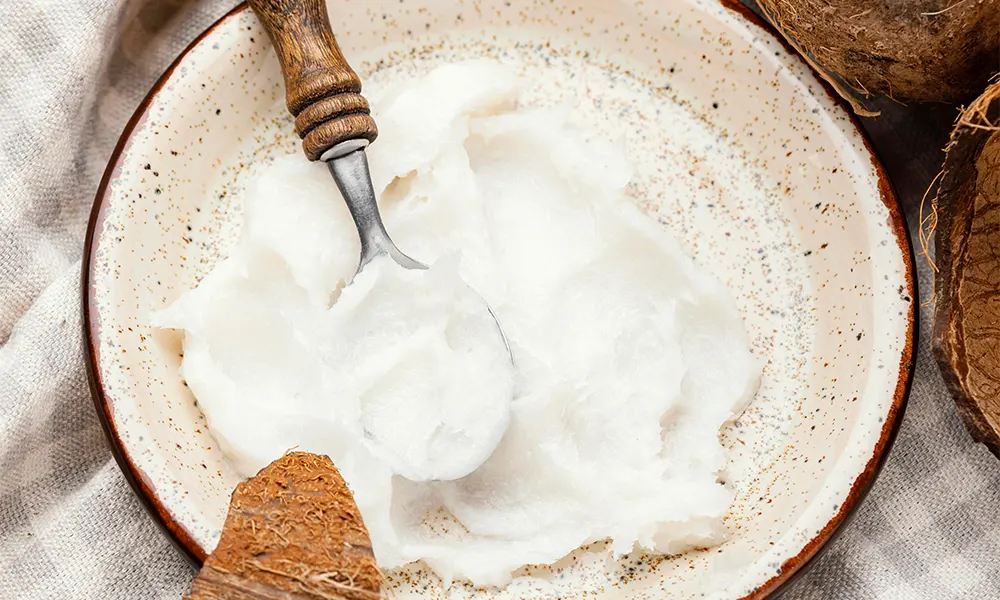Digestive discomfort, bloating, and food sensitivities are becoming more common, and many people are making dietary changes to avoid triggers. Gluten and dairy are two of the biggest culprits, but for those who still want to enjoy yoghurt without the side effects, there’s a simple solution—yogurt gluten-free options.
At Yohayo, we understand that not all yoghurts are created equal. That’s why we offer delicious, gluten-free yoghurt that is gentle on the stomach while still packed with flavour and nutrients.
Whether you’re avoiding gluten due to coeliac disease, gluten sensitivity, or digestive health reasons, choosing the right yoghurt can make a big difference. Let’s explore why gluten-free yoghurt is the perfect choice for sensitive stomachs and how to find the best options.
Why Does Gluten Matter in Yoghurt?
Gluten is a protein found in wheat, barley, rye, and some processed foods. While yoghurt is naturally gluten-free, many store-bought brands add thickeners, flavourings, or stabilisers that contain gluten.
Even small amounts of gluten can cause issues for those with:
- Coeliac disease (an autoimmune condition where gluten damages the intestines)
- Non-coeliac gluten sensitivity (causing bloating, discomfort, and fatigue)
- IBS or digestive issues (where gluten can worsen symptoms like cramping and bloating)
Choosing yogurt gluten free ensures that you get all the benefits of yoghurt without the risk of gluten contamination.
How Gluten-Free Yoghurt Supports Digestive Health
People with sensitive stomachs often struggle with bloating, cramping, or discomfort after eating certain foods. Gluten and dairy are common triggers, making it challenging to find foods that are both nutritious and easy to digest. Gluten-free yoghurt offers a simple solution, providing all the benefits of traditional yoghurt without the gut irritation.
From supporting gut bacteria to reducing inflammation, gluten-free yoghurt is an excellent option for anyone with digestive concerns, food sensitivities, or autoimmune conditions. Here’s why it should be a staple in your diet.
1. Packed with Probiotics for a Healthier Gut
The digestive system relies on a balance of good and bad bacteria to function properly. When gluten triggers inflammation in the gut, it can disrupt this balance, leading to issues like bloating, constipation, or diarrhoea.
Probiotic-rich gluten-free yoghurt helps restore gut balance by:
✔ Encouraging the growth of beneficial bacteria, which aid in digestion
✔ Reducing bloating and gas by improving how the gut processes food
✔ Enhancing nutrient absorption, ensuring the body gets essential vitamins and minerals
Look for live and active cultures such as Lactobacillus and Bifidobacterium, which are known for their gut-healing properties. These probiotics can help ease digestive discomfort and support overall gut health, especially for those with coeliac disease or gluten sensitivity.
2. Easier to Digest Than Regular Dairy
For people who struggle with dairy, yoghurt can be a gentler alternative because of the fermentation process. The good bacteria in yoghurt help break down lactose, making it easier to digest than milk or cream-based dairy products.
For an even more digestive-friendly option, many gluten-free yoghurts are made with non-dairy bases, such as:
✔ Almond milk – Light, nutty, and lower in carbohydrates
✔ Coconut milk – Creamy and naturally rich in healthy fats
✔ Oat milk – High in fibre, promoting gut health
✔ Soy milk – A protein-packed alternative for a more filling option
These non-dairy bases eliminate lactose entirely, making them suitable for lactose-intolerant individuals or those who experience bloating after eating dairy.
3. Gentle on Inflammation and Food Sensitivities
Inflammation is a major cause of digestive discomfort, and for many people, gluten is one of the biggest triggers. Even small amounts of gluten can lead to:
✔ Stomach pain and bloating
✔ Joint discomfort and muscle aches
✔ Skin flare-ups, such as eczema or acne
✔ Increased fatigue and brain fog
Switching to gluten-free yoghurt can help reduce inflammatory responses, making digestion smoother and more comfortable.
Many gluten-free yoghurts are also free from artificial additives and preservatives, which can contribute to gut irritation. By choosing natural, minimally processed options, you can support your digestive system while avoiding common food triggers.
4. Supports a Stronger Immune System
A healthy gut is directly linked to a strong immune system. Since 70% of the immune system is housed in the gut, what you eat plays a huge role in how well your body fights off illness.
Gluten-free yoghurt rich in probiotics can:
✔ Strengthen immune defences, making it easier to fight infections
✔ Reduce inflammation, which contributes to chronic illness
✔ Support overall well-being, improving energy levels and digestion
For people with autoimmune conditions, keeping inflammation low is key to managing symptoms and feeling their best. Adding gluten-free yoghurt to your diet can be a simple yet effective way to support immune function.
5. Helps Restore Gut Health After Gluten Exposure
If you have coeliac disease or gluten sensitivity, accidental gluten exposure can lead to weeks of discomfort. Symptoms like bloating, nausea, stomach cramps, and fatigue can last for days.
Eating gluten-free probiotic yoghurt after exposure can help speed up gut recovery by:
✔ Repopulating the gut with healthy bacteria, which speeds up digestion
✔ Reducing inflammation, soothing discomfort and bloating
✔ Aiding nutrient absorption, preventing vitamin deficiencies
This makes gluten-free yoghurt an essential food for people managing gluten intolerance. Keeping it in your diet can help maintain gut balance and reduce the severity of gluten-related symptoms.
How to Choose the Best Gluten-Free Yoghurt
Not all gluten-free yoghurts are created equal. While some are made with high-quality ingredients, others contain artificial additives, excessive sugar, or hidden gluten that can still cause digestive discomfort. Choosing the right yoghurt requires careful label reading and an understanding of which ingredients are best for gut health and overall wellness.
Whether you’re coeliac, gluten-sensitive, or simply looking for a healthier yoghurt option, here’s what to consider when picking the best yogurt gluten free product.
1. Look for Certified Gluten-Free Labels
Even if a yoghurt claims to be gluten-free, it doesn’t always mean it’s 100% safe for coeliacs or highly sensitive individuals. Cross-contamination during production is a common issue, and some yoghurts may still contain trace amounts of gluten.
To ensure your yoghurt is truly gluten-free, look for certified gluten-free labels. These labels indicate that the product has been tested and meets strict gluten-free standards, containing less than 20 parts per million (ppm) of gluten, a level considered safe for coeliac and gluten-intolerant individuals.
Some trusted gluten-free certification symbols include:
✔ The Coeliac Australia Endorsement Logo
✔ The Gluten-Free Certification Organization (GFCO) Seal
✔ The Australian Food Standards “Gluten-Free” Label
If a yoghurt doesn’t have certification, check the ingredient list carefully to ensure there are no gluten-containing additives.
2. Avoid Artificial Additives and Hidden Gluten Sources
Many commercial yoghurts add fillers and artificial ingredients to improve texture, flavour, or shelf life. However, some of these additives can trigger digestive issues or even contain hidden gluten.
Ingredients to avoid in gluten-free yoghurt:
❌ Modified food starch – Some starches are made from wheat-based sources.
❌ Maltodextrin – Typically derived from corn or potatoes, but some brands use wheat-based maltodextrin.
❌ Artificial flavours and colours – These can irritate the gut and add unnecessary chemicals to your diet.
❌ High-fructose corn syrup – A processed sugar that can contribute to bloating and poor gut health.
Instead, choose clean-label yoghurts that contain simple, natural ingredients like:
✔ Whole milk or dairy-free bases (like coconut or almond milk)
✔ Live probiotic cultures for gut health
✔ Natural fruit or raw honey for sweetness
These options provide better digestion support while keeping your yoghurt free from unnecessary additives.
3. Pick Low-Sugar or Naturally Sweetened Options
Many flavoured yoghurts contain excessive sugar, which can:
❌ Spike blood sugar levels, leading to energy crashes
❌ Disrupt gut bacteria, reducing probiotic benefits
❌ Increase bloating and digestive discomfort
Some brands add as much as 20g of sugar per serving, which is more than half of the recommended daily intake for children and adults.
Instead of choosing high-sugar yoghurts, opt for plain gluten-free yoghurt and add your own natural sweeteners:
✔ Fresh berries – Adds natural fibre and antioxidants
✔ A drizzle of raw honey or maple syrup – A more natural alternative to refined sugar
✔ Chia seeds, crushed nuts, or granola – Provides crunch, protein, and healthy fats
This way, you control the sugar content while enhancing both flavour and nutrition.
4. Consider Dairy-Free Gluten-Free Yoghurt Alternatives
If you’re lactose-intolerant or prefer plant-based options, there are many gluten-free dairy-free yoghurts available. These provide the same creamy texture and probiotic benefits without dairy-related digestive issues.
Popular dairy-free yoghurt bases include:
✔ Coconut yoghurt – Creamy and rich, with healthy fats that support digestion
✔ Almond yoghurt – Light and slightly nutty, with fewer carbs
✔ Soy yoghurt – A high-protein option, great for those avoiding animal products
✔ Oat yoghurt – Naturally creamy and high in fibre for gut health
Always check the label for gluten-free certification, as some dairy-free yoghurts contain additives or thickening agents derived from gluten sources.
5. Choose Yoghurts with Live and Active Probiotics
Probiotics are essential for gut health, especially for individuals with gluten sensitivities or digestive conditions. Gluten-free yoghurt with live cultures can help restore gut bacteria, reduce bloating, and improve nutrient absorption.
Look for yoghurts that contain beneficial probiotic strains, such as:
✔ Lactobacillus acidophilus – Supports digestion and reduces bloating
✔ Bifidobacterium bifidum – Helps ease constipation and improves gut function
✔ Streptococcus thermophilus – Reduces lactose intolerance symptoms and strengthens the immune system
Avoid yoghurts that heat-treat or pasteurise probiotics, as this kills beneficial bacteria, reducing the yoghurt’s digestive benefits.
6. Read the Nutritional Label for Protein and Fat Content
A good gluten-free yoghurt should be nutritionally balanced, providing a good mix of protein, healthy fats, and probiotics.
✔ Protein content: Look for at least 4-8g per serving to keep you full and energised.
✔ Fat content: Full-fat yoghurts are often more satisfying and contain fewer additives than low-fat varieties, which may have added sugars.
For children or active individuals, full-fat gluten-free yoghurt is a better option since healthy fats support brain development and energy levels.
Best Ways to Enjoy Gluten-Free Yoghurt
One of the best things about gluten-free yoghurt is its versatility. Whether you eat it for breakfast, dessert, or a post-workout snack, it fits into any meal plan.
1. Breakfast Parfait
Layer gluten-free yoghurt with:
✔ Fresh fruit (bananas, blueberries, or mango)
✔ Granola (gluten-free brands)
✔ A drizzle of peanut butter
2. Smoothie Boost
Blend with:
✔ Frozen berries
✔ A handful of spinach
✔ Almond milk for extra creaminess
3. Frozen Yoghurt Treats
Pour gluten-free yoghurt into popsicle moulds and freeze for a refreshing summer snack.
4. Savoury Dips
Mix plain yoghurt with:
✔ Lemon juice
✔ Garlic
✔ Cucumber for a homemade tzatziki
This makes a gut-friendly, gluten-free dip for veggies or crackers.
Why More People Are Choosing Gluten-Free Yoghurt
The demand for yogurt gluten free options has increased as more people realise the impact of gluten on digestion and overall health.
Some reasons include:
- More awareness of gluten intolerance and coeliac disease
- People seeking cleaner, natural ingredients
- The rise of dairy-free and plant-based alternatives
With more high-quality gluten-free options available, it’s easier than ever to enjoy yoghurt without worrying about digestive discomfort.
Final Thoughts: Make Gluten-Free Yoghurt Part of Your Diet
Finding a delicious, gut-friendly yoghurt doesn’t have to be complicated. Whether you have gluten sensitivity, coeliac disease, or just want to eat cleaner, gluten-free yoghurt is a great choice for better digestion and balanced nutrition.
At Yohayo, we believe everyone should be able to enjoy yoghurt without compromising on taste or stomach comfort. Check out our gluten-free yoghurt options and find a flavour that works for you!
For more information or to visit us in-store, head to our contact page.
FAQs
1. Can gluten-free yoghurt still contain traces of gluten?
Yes, cross-contamination can occur in manufacturing. Always look for certified gluten-free labels to ensure the product is safe for coeliacs.
2. Is all yoghurt naturally gluten-free?
Not all yoghurts are gluten-free. Some contain additives, thickeners, or flavourings derived from gluten-containing ingredients. Always check the label.
3. Does gluten-free yoghurt taste different?
No, the absence of gluten does not affect the taste. However, plant-based gluten-free yoghurts (like coconut or almond-based) may have a different texture and flavour.
4. Can I use gluten-free yoghurt in baking?
Yes, gluten-free yoghurt works well in baking as a substitute for butter, sour cream, or milk in recipes for cakes, muffins, and bread.
5. How do I know if yoghurt is causing digestive issues?
If you experience bloating, cramps, or discomfort after eating yoghurt, you may have a dairy sensitivity or an issue with specific ingredients like sweeteners or thickeners.





